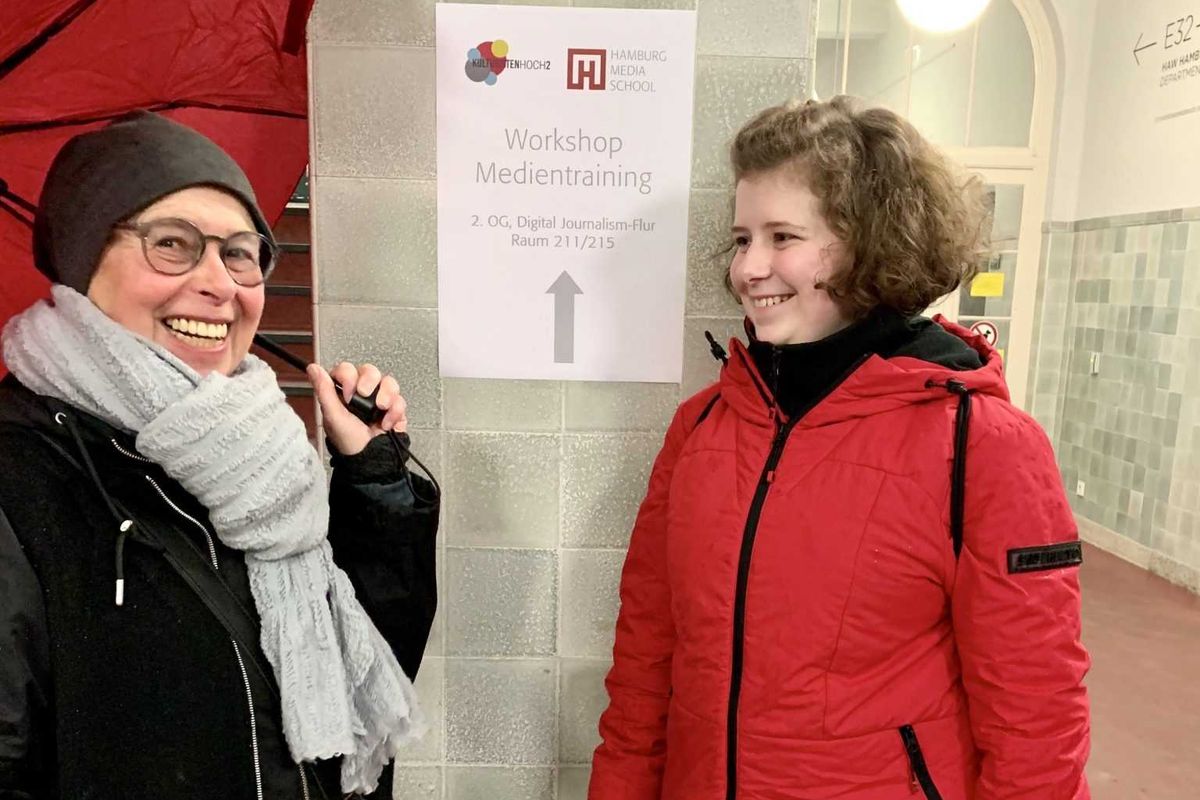He left prison for the first time since he was a teenager. Then he started filming.
14 days after finishing a 20-year sentence in prison, Bilal Coleman appeared on video in an unlikely setting: a garden full of fresh herbs.
With this, Coleman kicked off his video diary project called "The Freedom Chronicles," which documented his first year out of prison.
He doesn’t say much in that first video, which was filmed in December 2015. His mentor, another formerly incarcerated man named Anthony Forrest, shares the names of various plants around them. He encourages Coleman to break off pieces and smell the rosemary and basil — the scent of which, Coleman says, reminds him of his grandma.
These were Coleman’s first experiences of life outside of prison since he was a teenager — and most people in his place wouldn’t dream of sharing something so personal with the world.

For most people, the first year out of prison is a struggle. After incarceration, many have trouble finding stable jobs, accessing basic needs like healthy food, and transitioning back to daily life on the outside.
In fact, in Coleman’s home state of California, 7 out of 10 former inmates go back to prison within a year after being released.
Coleman was only 17 years old when he was sentenced to 20 years at San Quentin State Prison — so at 37, he didn’t exactly have a ton of work experience. Like so many others returning to their communities after incarceration, he faced the world with the odds stacked against him.
But when he got out, he had a good reason to start filming his journey — a job waiting for him at an organization called Planting Justice.
Planting Justice is an Oakland-based nonprofit that empowers people to grow their own food. In 2009, when co-founders Gavin Raders and Haleh Zandi launched the organization, they wanted to support people who are most affected by issues such as poverty and a lack of access to nutritional food. And they couldn’t think of a better way to do that than hiring people who, like Coleman, are leaving prison.

"We really wanted to build the world that we want and need, and focus on solutions," says Gavin Raders, executive director of Planting Justice.
The organization offers a living wage and full benefits to all of its staff — an opportunity that’s all too rare for people with criminal records. Since its start in 2009, the Planting Justice team of landscapers has built over 450 edible gardens around the Bay Area.
Today, they employ about 35 full-time staff members, and just over half — including Coleman — are formerly incarcerated.
They've garnered some significant support, including plant sales from customers all over the country and $300,000 a year in small donations earned through street canvassing. They were even awarded a grant through The Kresge Foundation’s Fresh, Local, and Equitable initiative, known as “FreshLo,” for building healthy, inclusive communities.
FreshLo is all about supporting work that leverages creative, neighborhood-based food enterprises for community development, and these Bay Area gardens are brilliant examples.
The Planting Justice edible gardens grow in unlikely places — empty lots, schools, and concrete neighborhoods that don’t have fresh produce or green spaces for miles.
About 100 of the gardens they’ve built so far have been free or on a sliding scale, with fees depending on income, for people who wouldn’t otherwise be able to afford them.
A Planting Justice garden begins to grow at a juvenile detention center.
In spite of his inexperience, it turns out that Coleman is actually the perfect fit for this work. He’s from the very communities that Planting Justice serves and can relate to their struggles on a personal level.
"You try to instill a life skill within the youth, but what you don’t understand is you’ll receive one as well," he shares in the video for his 200th day out of prison.
Planting Justice has a success rate of nearly 100%. In nine years of existence, only one formerly incarcerated staff member has returned to jail.
What began as a simple landscaping service now includes education programs, farmer training, and a holistic re-entry program to help former prisoners transition back to a stable life.
And in 2017, after a lot of hard work and the help of over 900 donors, Planting Justice acquired a 2-acre plot of land to open up a nursery and farm. Rolling River Nursery provides landscaping services to the neighborhood, and ships plants, herbs, and trees all over the country. It’s located in deep East Oakland, California, in an area called Sobrante Park, which is known for having some of the highest rates of unemployment and crime in Oakland.
Sobrante Park is exactly the kind of place that needs green jobs like the ones Planting Justice creates, and Raders hopes that similar neighborhoods throughout the country can replicate their model.
Staff members at Rolling River Nursery.
In his final "Freedom Chronicles" video, Coleman celebrates his 365th day of freedom — and shows a total transformation.
This time, Coleman’s the one naming the plants, and he’s much more outgoing than he was when he started. His smile glows as he shows viewers his work, including the gardens he tends daily and a high school where he passes his skills on to youth.
"I feel overjoyed!" he exclaims about beating the odds by thriving in his first year out of prison.
It’s clear that he’s gained some skills, including newfound abilities in public speaking, youth education, and analyzing issues like economic and environmental injustice that affect the communities where he lives and works.
Coleman on his 365th day of freedom.
Coleman’s story shows how an opportunity to thrive after prison can help lift up a whole community.
Coleman was still working at Planting Justice at the time of this writing. He also enjoys spending time with his two kids, and he’s developed a passion for health and personal fitness.
On top of providing fresh food, vital skills, and an opportunity to escape the cycle of mass incarceration, the formerly incarcerated staff members get a chance to help lead these initiatives to transform their neighborhoods.
At the end of his last video, Coleman grins as he looks over the results of his hard work.
"Seasons pass, tomatoes are gone, the chard has popped back up like the spring," he says. "That’s resilience."



 A UPS truck with package deliveries.Image via Wikipedia
A UPS truck with package deliveries.Image via Wikipedia
 Cher was the biggest phenomenon on the planet for the better part of the '70s and '80s.Casblanca Records/
Cher was the biggest phenomenon on the planet for the better part of the '70s and '80s.Casblanca Records/

 A high school volunteer with her senior "tandem."
A high school volunteer with her senior "tandem."  KH2 makes leaving the house more accessible to senior citizens.
KH2 makes leaving the house more accessible to senior citizens.  Many "culture buddies" stay in contact after the program ends.
Many "culture buddies" stay in contact after the program ends.  KH2 provides students with excellent life skills and lasting connections.
KH2 provides students with excellent life skills and lasting connections. 
 Parents posing with their young kids on a basketball court. via
Parents posing with their young kids on a basketball court. via